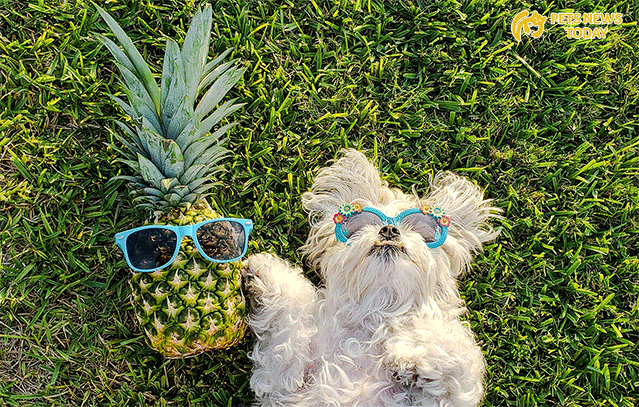Can Dogs Eat Pineapple? – What Every Pet Owner Should Know

As a responsible pet owner, you want to make sure your dog has a balanced and healthy diet. Sometimes that means giving them treats in the form of fruits and vegetables, but not all produce is safe for canine consumption. One fruit you might be curious about is pineapple. So, can dogs eat pineapple? The short answer is yes, but there are some important details you need to know before offering this tropical fruit to your furry friend.
The Nutritional Value of Pineapple

Pineapple is rich in vitamins and minerals that are beneficial for dogs to eat in moderation. This fruit contains high levels of vitamin C, which can help boost your dog’s immune system. It also contains vitamin B6, which supports brain function and energy metabolism. Additionally, pineapple provides manganese, an essential nutrient that promotes healthy bones and skin.
Pineapple’s Bromelain Enzyme
Pineapple contains an enzyme called bromelain, which has anti-inflammatory properties and may aid in digestion. While this can be helpful for some dogs, excessive consumption of bromelain can lead to gastrointestinal upset. Keep an eye on your dog for any signs of stomach discomfort if you decide to introduce pineapple to their diet.
Feeding Pineapple Safely to Your Dog

If you want to give your dog pineapple as a treat, there are a few safety measures you should keep in mind:
- Moderation: Pineapple should be offered as an occasional treat, not a regular part of your dog’s diet. Too much pineapple can lead to digestive issues or weight gain due to its natural sugars.
- Prepare Pineapple Properly: Make sure to remove the skin, crown, and eyes from the pineapple, as these parts can be tough for your dog to chew and digest. Cut the fruit into small, bite-sized pieces for easy consumption.
- Avoid Canned Pineapple: Canned pineapple often contains added sugars and preservatives that can be harmful to your dog. Always opt for fresh pineapple instead.
- Monitor for Allergic Reactions: Some dogs may have allergic reactions to pineapple. Keep an eye out for symptoms like itching, swelling, or difficulty breathing.
How to Let Dogs Eat Pineapple
Here are some creative ways to serve pineapple to your dogs:
- Frozen Pineapple: Cut pineapple into small chunks and freeze them for a refreshing treat on a hot day.
- Pineapple and Yogurt: Mix small pieces of pineapple with plain, unsweetened yogurt for a tasty snack.
- Pineapple Topper: Add small pieces of pineapple to your dog’s regular food as a flavor enhancer.
When Not to Feed Pineapple
While pineapple can be a healthy treat for most dogs, there are situations when you should avoid feeding it to your dog:
- Underlying Health Conditions: If your dog has diabetes or pancreatitis, the natural sugars in pineapple may exacerbate their condition. Consult your vet before introducing pineapple.
- Digestive Sensitivities: Dogs with sensitive stomachs may experience gastrointestinal upset from the natural acids and bromelain in pineapple.
- History of Allergic Reactions: If your dog has a history of allergies to other fruits, be cautious when introducing pineapple.
Conclusion
In summary, dogs can eat pineapple, but it should be given in moderation and prepared properly. Pineapple offers various health benefits, including vitamins, minerals, and digestive enzymes. By taking the necessary precautions and monitoring your dog for any adverse reactions, you can safely introduce this tropical fruit to your dog’s diet as a tasty treat.
Always consult your veterinarian before making any significant changes to your dog’s diet, especially if your dog has any pre-existing health conditions or dietary restrictions. By being a responsible pet owner and making informed choices, you can keep your dog happy and healthy while enjoying a variety of foods.




